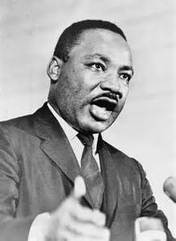Oct 1956
I. This is probably the most familiar of all of the parables of Jesus. George Mury has said that this parable is “the most divinely tender and the most humanly touching story ever told on earth. This is no exaggeration. No story more instantly touches the nerve of actual life. It is the story of a boy who churned his llfe into fleshly mess and is condemned by it and is finally saved.
II. Tell the story. As we look at the Prodical, let us look not as spectators. The Prodical is a faithful reflection of life everywhere, in every age.
III. The one word that can descnbe all of this boys mistakes is the word “illusion.” He was the tragic victim of a threefold illusion.
What is an illusion? It is an imange in the mind’s eye which has no corresponding existence in reality.
A The first illusion is his mind was that pleasure is the end of life, that the satisfaction of the senses is the end of existence. This is an old illusion:
(1) The Hedonist
(2) Epicurus
(3) Ecclesiastes
(4) Omar Khayyam
The moving Finger writes and Having writ, moves on
Neither tears nor wit can cancel out a line of it!
“A Book of verses underneath the Bough, A jug of wine, a loaf of Bread an Thou“
The saddest people in the world,”wrote Winchell,“are those siting in joints making believe they are having a good tlme ” This Broadway street [of fools]
B. The second illusion was the feeling on the part of the prodical that he was independent, that he could live life happily outside his fathers house and his fathers will.
C He was a victim of the illusion that freedom IS liscnce.
I. This is probably the most familiar of all of the parables of Jesus. George Mury has said that this parable is “the most divinely tender and the most humanly touching story ever told on earth. This is no exaggeration. No story more instantly touches the nerve of actual life. It is the story of a boy who churned his llfe into fleshly mess and is condemned by it and is finally saved.
II. Tell the story. As we look at the Prodical, let us look not as spectators. The Prodical is a faithful reflection of life everywhere, in every age.
III. The one word that can descnbe all of this boys mistakes is the word “illusion.” He was the tragic victim of a threefold illusion.
What is an illusion? It is an imange in the mind’s eye which has no corresponding existence in reality.
A The first illusion is his mind was that pleasure is the end of life, that the satisfaction of the senses is the end of existence. This is an old illusion:
(1) The Hedonist
(2) Epicurus
(3) Ecclesiastes
(4) Omar Khayyam
The moving Finger writes and Having writ, moves on
Neither tears nor wit can cancel out a line of it!
“A Book of verses underneath the Bough, A jug of wine, a loaf of Bread an Thou“
The saddest people in the world,”wrote Winchell,“are those siting in joints making believe they are having a good tlme ” This Broadway street [of fools]
B. The second illusion was the feeling on the part of the prodical that he was independent, that he could live life happily outside his fathers house and his fathers will.
C He was a victim of the illusion that freedom IS liscnce.

